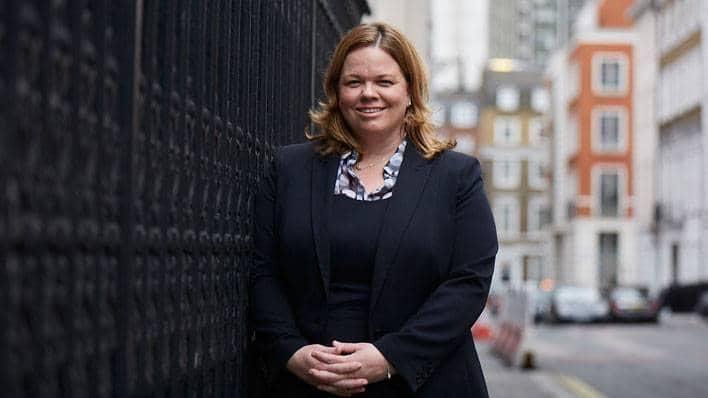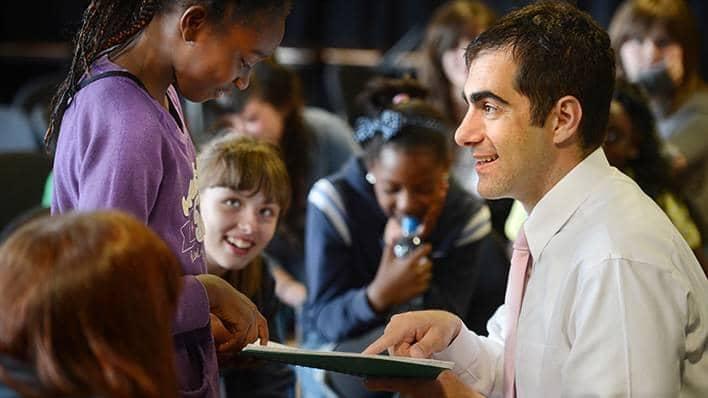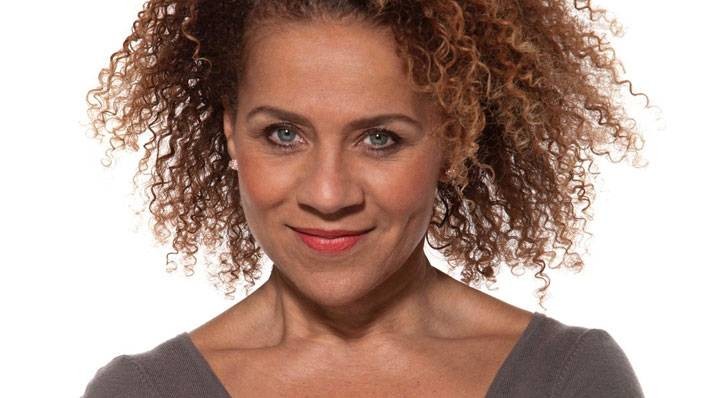
Leading Questions: Kathleen Britain
Kathleen Britain joined Barclays in 2005 and was appointed Head of Charities for Barclays in 2016

Chi-chi Nwanoku is the founder of the Chineke! Orchestra – Europe’s first majority black and minority ethnic (BME) orchestra – and was named ‘Person of the Year 2016’ at the Barclays-sponsored Black British Business Awards.
Ahead of the orchestra’s BBC Proms debut this summer, we talk to the leading double-bassist about what it takes to become a world-class musician – and why diversity is as important in the concert hall as it is in the workplace.
What has your career in music taught you about leadership?
I’ve been a principal double bassist for 35 years of my career so I’ve been in a position of leadership for quite a long time: as a principal, as a teacher at the Royal Academy of Music and as a parent. They are all roles where you have got to make decisions and some of those roles you aren’t taught. There are no classes in how to do this, that and the other, especially in parenting and the music world, because you lead by demonstration and performance.
How did your parents influence the leader you are now?
I had wonderful parents. I think they set me up very well. My father was Igbo, from Nigeria, and my mother was southern Irish. As first-generation immigrants in the 50s, they had to fight just to be together as a couple. My parents never doubted me, and they taught me not to doubt myself. They always stressed that we should never aim to scrape by with the bare minimum, that we had to be more than just “good enough”. We had to over-prepare. They gave me the drive to live life beyond a straight line. In order to increase your progress you have to overcompensate. So that was my leadership lesson.
My parents gave me the drive to live life beyond a straight line
What were the challenges you faced in putting the Chineke! Orchestra together?
Firstly: recruitment. When I started Chineke!, I could count on the fingers of one hand how many people of colour I have worked with in this country, and three of those were singers! I went on a massive journey to find the players. I wrote to lots of my friends who are soloists to ask if they’d noticed someone of colour or ethnicity in the orchestras around the country that they play with. I researched every single person very thoroughly as I needed to know they were of the right standard.
Then there was funding. Thankfully the Southbank Centre showed us great support and launched the first Chineke! concert free of charge, and gave us the box office takings. From the beginning, I was adamant that this orchestra wasn’t going to be London-centric, because the lack of diversity in classical orchestras is a global issue. I decided we would go Europe-wide, which meant flying people in, trains from Paris etc, hotels and so on. We are constantly facing barriers. But Chineke! is here to stay.
Do you feel a responsibility to represent black and minority ethnic (BME) musicians in the classical music world?
Absolutely, in more ways than one, both on and off the stage, and in the music we play. I feel a huge responsibility for showcasing the music of composers who have been grossly neglected. In our concerts, we don’t just perform pieces from the ‘great canon’, which are played over and over again by orchestras worldwide. We include pieces by composers like Joseph Boulogne (aka the Chevalier de Saint-Georges) and Samuel Coleridge-Taylor – wonderful composers whose music deserves to stand alongside Beethoven but who do not get the recognition they deserve. They’ve been virtually air-brushed out of history! The sense of pride among our musicians when they play a piece written by someone like them: they walked off that stage a foot taller after playing Coleridge-Taylor’s ‘Ballad in A minor’ in our first concert. So we have a duty of service to raise awareness, and that’s what we’re doing.
Chi-chi was named ‘Person of the Year 2016’ at the Barclays-sponsored Black British Business Awards
Why is diversity so important?
The Chineke! Orchestra is quickly changing perceptions. When they walk on stage and the audience sees this orchestra, every shade possible under the sun is on that stage. Typically, half of the audiences we play to are regular concertgoers, and the other are an entirely new audience that looks like London and the community in which we all live. I know for a fact that there were people in the audience who had never even been inside the Southbank Centre, let alone inside a concert hall to hear classical music, simply because they feel they don’t belong there. To have enjoyed the concert and be able to relate to the people they see on stage is an empowering experience for them. And now they’re going back to watch other concerts. So what we have done has made a huge contribution to the state of the arts. We are broadening the audience as well as the performers.
We are broadening the audience as well as the performers
How do you nurture the next generation of leaders?
One of the things I say to all of my players is: “Know that you are an asset”. You are an asset to yourself, an asset to your people and you’re an asset to the music industry – and the world. Believe in yourself. You belong. You have so much to say, so much to be proud of. I created the Chineke! Junior Orchestra because I know that is the pipeline through which future players will come. And our young players are already making history. Sheku Kanneh-Mason was the first black child to win BBC Young Musician Of The Year. The Chineke! Juniors are now entering competitions they might not have done before, applying for conservatoires and winning prizes. One of the Juniors won a full music scholarship to Eton aged 13 and another to Wellington. Three have won scholarships to the Royal Academy of Music and several have applied and got in to the National Youth Orchestra of Great Britain.
How important is teamwork in an orchestra?
Every single one of those players has a viable reason to be there and a contribution to make. They are all ambassadors, not just the leaders of each section. Right to back desk of the second violins. In the concert programmes we have short biographies for every single player. It is very important that the members of the orchestra do not just read as a shopping list of names. They are all fascinating individuals that should be acknowledged as such.
How do you get the most out of your team?
If everyone I book to work in my team simply agrees with everything I say, then I feel as though I’ve made a series of hiring mistakes. I want to be inspired by my team. I want them all to have their own ideas and thoughts that will contribute to the most wonderful outcome that brings us all onto another level. Diversity of thought and contribution is as important as diversity of ethnicity.
What would you have become if you weren’t a musician?
I was training to be a sprinter. That ended after a terrible football accident, but I’m still a sprinter in my heart. But again it’s performance. The track was my first stage.
As a teacher and a leader, how do you deal with failure?
If my students get upset when they mess up a passage or play something out of tune, I say: “Look, this is where you’re allowed to make mistakes.” You’ve got to make them somewhere. If you never make mistakes, how do you learn?
If you make a mistake on stage with an audience there, you have to learn how to deal with that too. What you don’t do is stop. You have to make the best of the situation. You’ve got be inventive, resourceful, imaginative and versatile. I’m a perfectionist but I recognise that things can go wrong – that’s life. But you can still turn that wrong into a right. The words “no” or “you can’t” are my favourite words in my life. They excite me to turn them into positive “can do’s”.

Kathleen Britain joined Barclays in 2005 and was appointed Head of Charities for Barclays in 2016

Anna Kessel is a sports journalist and the Chair and Co-founder of Women in Football

Ian Rand left the British Army in 2000 to move into banking and joined Barclays as COO for Coverage in 2008, before becoming CEO for Business Banking in spring 2016

Brett Wigdortz originally planned to take only six months out from his job as a management consultant to draw up the business plan for Teach First, the charity that strives for better education for pupils from low-income backgrounds
